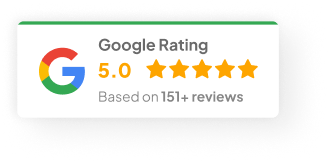13 Feb 25
How Long Does It Take to Learn Javascript?
You’re thinking about learning JavaScript? Smart move. It’s everywhere—websites, apps, games, even bits of AI work. I’ve seen people turn entire careers around just by getting decent at it. But let’s be real upfront: learning it isn’t a weekend project.
The truth is, how long it takes really depends on a few things. Your background, how much time you’ve got, and what you’re actually aiming to build. Let me break it down like I would if we were sitting down with a coffee.
What Impacts How Fast You’ll Learn JavaScript
1) Your Previous Coding Experience
If you’ve already dabbled in Python, Java, or even a bit of C#, you’ve got a head start. You already know variables, loops, and functions. That stuff transfers over.
But if you’re coming in totally fresh, yeah—it’s going to take longer. You’ll need time to wrap your head around basic logic, syntax, and how code actually thinks. One of my mates, Dave, started with zero background—took him about 5 months to build his first real interactive webpage. Not bad, but it took hustle.
2) How You’re Learning
You can totally self-teach. YouTube, freeCodeCamp, Codecademy—plenty of free resources out there.
But if you want to speed things up? Structured courses or bootcamps work. I once mentored a guy who went through a 12-week full-time coding bootcamp at General Assembly. By week 10, he was already deploying little apps on Netlify.
Some good platforms to check out:
-
Udemy (great for budget courses)
-
Scrimba (super interactive)
-
The Odin Project (deep dive, free)
3) What You’re Trying to Build
Your goal matters big time.
-
Just want to build a personal blog? You’ll get there pretty quick.
-
Want to become a full-stack developer? Buckle up.
-
Aiming for front-end jobs? You’ll need React, some CSS wizardry, and DOM mastery.
Honestly, learning basic syntax is the easy part. Building real apps that handle errors, data, and users — that’s where it stretches out.
4) Time You Can Put In
You can’t hack time.
If you’re coding for an hour or two a week, expect the journey to feel slow. But if you carve out 1–2 hours a day, things ramp up fast. Consistency beats intensity.
Rough Timeline for Learning JavaScript
Let me give you a rough map. Adjust for your situation.
-
1–3 weeks: Basics (variables, functions, loops)
-
1–3 months: Comfortable with DOM, simple apps, basic problem solving
-
3–6 months: Advanced stuff (async code, ES6, small projects)
-
6 months–2 years: Mastery, frameworks, real-world apps, specialization
I’ve seen people land junior dev jobs in under a year with the right grind. But it’s work.
Stages of the Learning Journey
Stage 1: The Basics
You’ll start with:
-
Variables (
let,const) -
Data types (strings, arrays, objects)
-
Loops (
for,while) -
Conditionals (
if,switch) -
Functions (declaring and calling them)
At this point, you’ll probably be building little calculator apps or to-do lists. Expect 1–3 weeks if you’re steady with your practice.
Stage 2: Intermediate Skills
Now you’re:
-
Manipulating the DOM (changing web pages dynamically)
-
Handling events (clicks, forms)
-
Writing reusable functions
-
Working with objects and arrays more deeply
This is where you start making interactive websites. Give it 1–3 months. Build stuff like weather apps or simple games.
Stage 3: Advanced Concepts
This is where most people start sweating.
-
Closures, scope, and hoisting
-
Promises and async/await
-
ES6+ features (destructuring, arrow functions, modules)
-
Frameworks (React, Vue, Node.js)
At this stage, you’re starting to build portfolio-worthy projects. 3–6 months if you’re consistent.
Stage 4: Mastery (Ongoing)
Mastery means you’re:
-
Writing clean, scalable code
-
Building full-stack apps
-
Optimizing performance
-
Specializing in your chosen path (frontend, backend, mobile, or even machine learning with TensorFlow.js)
This stage never really ends. You’ll keep learning as the language evolves.
Ways to Speed Up Your Learning
If you want to shortcut the process (without skipping the hard parts), try these:
-
Code every day, even 30 minutes helps.
-
Join communities: Reddit’s r/learnjavascript, local meetups, or Discord servers.
-
Do coding challenges: CodeWars, HackerRank, or LeetCode.
-
Work on real projects: Build your own website, automate boring stuff, or recreate existing apps.
-
Don’t fear bugs: Debugging teaches you more than any tutorial ever will.
-
Use the docs: The MDN Web Docs are gold.
Don’t Sweat the Roadblocks
You will get stuck. Everyone does. Closures, hoisting, async code—they trip up even seasoned devs.
I’ve had days where one missing semicolon derailed 3 hours. It happens. Just stay patient.
JavaScript opens doors to:
-
Web development
-
Mobile apps (React Native)
-
Games (Phaser.js)
-
Data science (TensorFlow.js)
Stick with it. It’s worth it.


